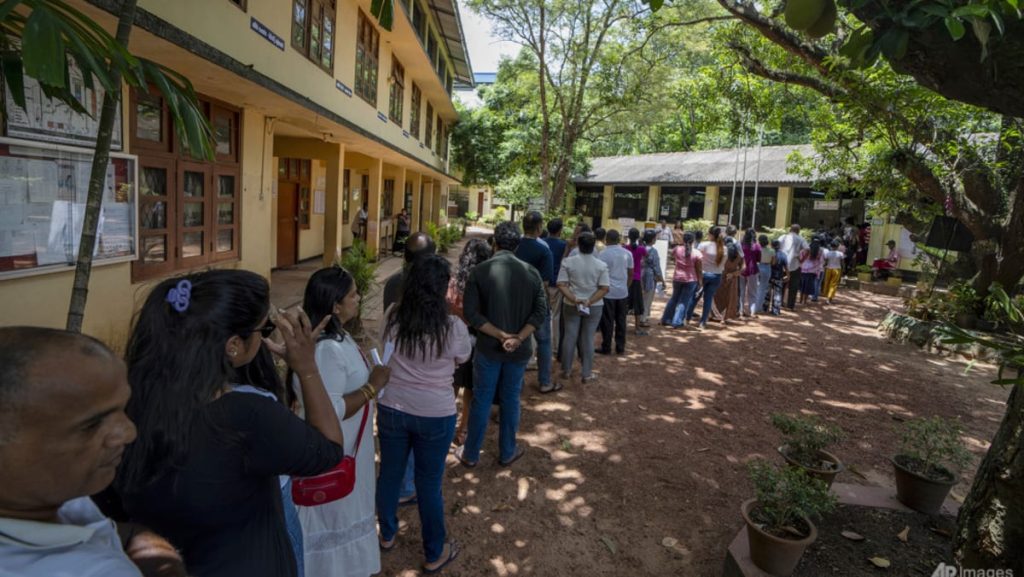Ranil Wickremesinghe, the current Prime Minister of Sri Lanka, is facing a tough challenge in the upcoming elections from two strong contenders. One of them is Anura Kumara Dissanayake, the leader of a Marxist party with a violent past. The party had led failed uprisings in the 1970s and 1980s, resulting in the deaths of over 80,000 people. In the previous parliamentary elections, the party had only won less than four percent of the vote. However, Dissanayake has seen a surge in support as he promises to change the corrupt political culture of the island.
Despite his party’s violent history, Dissanayake remains confident of securing the top job in the upcoming elections. He has emphasized the need for a new political culture in Sri Lanka, one that is free from clashes and violence. Dissanayake’s message has resonated with many voters who are disillusioned with the current state of affairs in the country. His focus on rooting out corruption and bringing about positive change has generated significant support for his candidacy.
Sajith Premadasa, another opposition leader and the son of a former president who was assassinated during the civil war, is also expected to pose a strong challenge to Wickremesinghe. Premadasa has made fighting corruption a central part of his campaign platform, vowing to tackle the endemic issue head-on. Both Premadasa and Dissanayake have promised to renegotiate the terms of the IMF rescue package, seeking to address the economic challenges facing Sri Lanka and ensure a more equitable distribution of resources.
The upcoming elections in Sri Lanka are poised to be highly competitive, with Wickremesinghe facing serious challenges from both Dissanayake and Premadasa. The dissatisfaction with the current government’s handling of various issues, including corruption and economic reform, has created an opening for opposition leaders to present themselves as agents of change. Dissanayake’s rise in popularity, despite his party’s violent past, underscores the hunger for a new political culture in Sri Lanka that values transparency and accountability.
As the election campaign heats up, all three candidates are making their cases to the electorate, emphasizing their respective platforms and visions for the future of Sri Lanka. The outcome of the elections will have far-reaching implications for the country’s political landscape and its ability to address pressing challenges. Whether Wickremesinghe can retain his position as Prime Minister or if he will be unseated by one of his formidable opponents remains to be seen. The people of Sri Lanka are eagerly watching the developments leading up to the elections, hoping for a brighter, more stable future for their nation.


